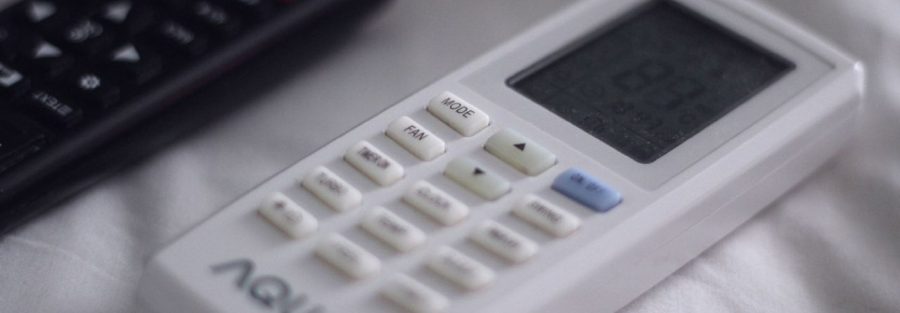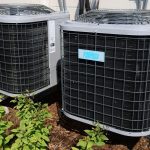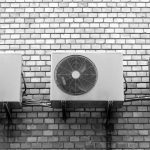An air conditioner leaking water can be a homeowner’s nightmare. AC dripping water is a common issue that can lead to leaking water inside the home, causing concern for many homeowners. It not only disrupts comfort but can also cause significant damage. Understanding why your AC unit is leaking is crucial.
Common causes include clogged drain lines and dirty air filters. These issues can lead to water pooling around your unit.
Ignoring these signs can result in costly repairs and water damage.
Regular maintenance can prevent many of these problems.
This guide will help you identify and fix common air conditioner leaks.
Why Is My Air Conditioner Leaking? Common Signs and Risks
An air conditioner leaking can indicate underlying problems. Spotting the signs early is essential to prevent further damage.
Common signs of a leak include water pooling near your unit and unusual noises. These may signal underlying maintenance issues, a water leak, or other problems that require attention.
Leaks present multiple risks to homeowners. Water damage can affect floors and walls, leading to costly repairs. Additionally, leaks contribute to mold growth, which harms indoor air quality. Timely action is necessary to avoid damage.
If these issues are not addressed, your air conditioner may continue to leak water, causing further complications.
To mitigate these risks, be attentive to any signs of leakage. Key indicators to watch out for include:
- Water stains on walls or ceilings
- A musty smell in the area
- Increased humidity inside the home
Air Conditioner Components and Leaks
Understanding the various components of your air conditioning system is essential for preventing and addressing leaks. Each part of your ac unit—from the evaporator coil to the condensate drain line—plays a crucial role in keeping your home cool and dry. When any of these components malfunction, it can lead to your air conditioner leaking water and potentially cause water damage.
The evaporator coil is where warm air from your home is cooled. As the coil cools the air, condensation forms and drips into the drain pan. The drain pan is designed to collect this moisture and direct it into the condensate drain line, which safely removes the water from your ac system. However, if the condensate drain line becomes clogged with dirt or debris, or if the drain pan is damaged or rusted, water can back up and leak from your unit.
Dirty air filters are another common culprit. When air filters become clogged with dust and debris, they restrict proper airflow over the evaporator coil. This can cause the coil to freeze, and when the ice melts, it can overwhelm the drain pan and lead to water leakage. Regularly replacing dirty air filters is a simple but effective way to maintain proper airflow and prevent leaks.
A broken condensate pump can also result in your ac unit leaking water, especially in systems where gravity alone cannot move water from the drain pan to the outside. If the condensate pump fails, water can accumulate and eventually leak from the unit. Regular inspection and maintenance of the condensate pump are important to avoid this issue.
Improper installation of your air conditioner or condensate drain line can also cause drainage problems. If the unit is not level or the drain line is not correctly positioned, water may not flow as intended, leading to leaks. Always ensure your ac system is installed by a qualified professional to prevent these problems.
Finally, refrigerant levels play a significant role in leak prevention. Low refrigerant levels can cause the evaporator coil to freeze, and when the ice melts, it can lead to water leaks. Monitoring refrigerant levels and addressing any leaks promptly can help you avoid costly repairs and further damage.
By understanding how each component of your air conditioning system can contribute to leaks, you can take proactive steps to prevent water damage and maintain the efficiency of your ac unit. Regular maintenance, timely repairs, and professional installation are key to keeping your air conditioner leak-free and your home comfortable all season long.
Main Causes of a Leaking AC Unit
Understanding the main causes of an air conditioner leaking or AC leaking water is crucial for proper maintenance. The most common cause is a clogged condensate drain line, which obstructs water flow.
Secondly, dirty air filters can lead to icy evaporator coils, which drip as they thaw. Low refrigerant levels might also contribute, freezing coils and causing subsequent leaks. Lastly, a damaged or rusted drain pan can allow water to seep through, resulting in an AC leak.
Addressing these key areas can help you manage and prevent AC leaks effectively.
1. Clogged Condensate Drain Line
A clogged condensate drain line, also known as the condensate line, is often to blame when your air conditioner leaks. This line removes moisture collected by the system, but can become blocked by dirt or algae.
When blocked, water has nowhere to go, resulting in leaks. If the blockage is severe, water overflows from the unit, potentially causing water damage. If you notice water pooling around your unit, check for clogs in the drain line.
A simple cleaning with a wet/dry vacuum can clear blockages, restoring proper drainage and preventing further leaks.
2. Dirty or Clogged Air Filter
A dirty air filter can exacerbate leak issues. It restricts airflow, and as a result, the evaporator coil often freezes. Restricted airflow can lead to frozen evaporator coils, and when the coil eventually defrosts, it can cause water to leak.
Regularly changing or cleaning air filters maintains efficient airflow. Clean filters also prevent ice buildup on coils.
It’s a straightforward yet vital task that keeps your AC unit functioning optimally.
3. Low Refrigerant Levels
A refrigerant leak can cause low refrigerant levels, which in turn can make air conditioners leak. Insufficient refrigerant from a refrigerant leak causes the evaporator coil to freeze.
When the coil thaws, the accumulated ice melts and results in excess water. This usually leads to leaks.
Regularly checking and maintaining refrigerant levels, and promptly identifying any refrigerant leaks, helps prevent coil freezing and subsequent water leaks.
4. Damaged or Rusted Drain Pan
A damaged drain pan, also known as a condensate pan, can cause leaks in your AC unit. The condensate pan collects water from your AC, but over time it can deteriorate. Rust, corrosion, or physical damage may create holes in the pan, allowing water to escape.
A leaking or damaged drain pan is a clear indicator your unit needs attention. Regular inspection of the condensate pan can help spot cracks, blockages, or other damage early.
Replacing a damaged drain pan ensures water is properly contained and drained, preventing water damage.
5. Improper AC Installation or Leveling
Incorrect installation can cause significant issues, including leaks. If your AC unit is not level, water may not flow properly to the drain pan. Improper installation of the outdoor unit can also contribute to drainage issues, as it may affect the system’s ability to dissipate heat and manage condensation effectively.
This can result in water accumulating inside the unit. Proper installation and leveling ensure efficient water drainage.
If you suspect installation issues, consider calling a professional to assess the situation.
6. Broken Condensate Pump
A broken condensate pump can disrupt water removal, causing leaks. This pump moves water from the drain pan to the exterior.
If malfunctioning, water might remain in the unit. Regular checks and maintenance of the condensate pump are essential. Installing a float switch can help prevent overflow by shutting down the system or activating an alarm if the condensate pump fails.
Repairing or replacing a faulty pump can restore the unit’s efficient operation and prevent leaks.
How to Fix a Leaking Air Conditioner: Step-by-Step Solutions
Fixing a leaking air conditioner requires identifying the root cause. Begin by inspecting the drain line for clogs. If blocked, clear it using a wet/dry vacuum and remove debris from the drain line to ensure proper drainage.
Next, check the air filters. Replace or clean them if they’re dirty, ensuring smooth airflow and preventing coil freezing. For refrigerant issues or more complex repairs, it’s best to consult with a professional HVAC technician to adjust the levels safely and perform thorough inspections.
If the drain pan is rusted or damaged, replace it to ensure proper water collection. During inspection, look for water droplets forming on the evaporator coil, as water forms there due to condensation. Verify the air conditioner’s installation and leveling, adjusting if necessary to prevent imbalances. Additionally, ensure the condensate pump is functioning properly. If you suspect a malfunction, consider a repair or replacement.
Taking these steps will help you address leaks and maintain your air conditioner’s efficiency.
Preventing Future Leaks: Maintenance Tips for Your AC Unit
Regular maintenance is crucial to preventing future leaks. Start by scheduling professional inspections annually to catch potential issues early. Regular upkeep ensures your AC efficiently removes heat from indoor air and manages condensation, reducing the risk of water buildup and leaks. This proactive approach can extend the life of your unit and improve efficiency.
Keep air filters clean. Dirty filters can cause a cascade of problems, including ice on coils. Clean or replace filters monthly, especially during peak use months, to ensure good airflow.
Here’s a quick checklist to follow:
- Check air filters monthly and replace if needed.
- Ensure the unit is level to prevent drainage issues.
- Inspect and clean the condensate drain line regularly.
- Monitor refrigerant levels and top up as necessary.
By adhering to these simple practices, you can safeguard your home from leaks and maintain a comfortable living environment.
When to Call a Professional for a Leaking Air Conditioner
Sometimes, DIY solutions aren’t enough. If a leak persists despite your efforts, it’s time to call a professional.
Seek expert help if you observe water damage signs or suspect refrigerant issues. Professional HVAC technicians can diagnose and remedy complex problems effectively. Don’t delay, as prolonged leaks can cause mold and structural damage.
Frequently Asked Questions About Leaking AC Units
Air conditioner leaks can raise many questions. Some common inquiries need clarification.
- Why is my air conditioner leaking indoors?: This could result from a clogged drain line or frozen coils.
- Is a leaking AC dangerous?: Yes, prolonged leaks can lead to water damage and mold.
- Can I fix a leaking AC unit myself?: Minor issues like a clogged drain can be DIY fixes. However, it’s best to consult a professional for persistent leaks.
Addressing these issues quickly ensures a comfortable and safe indoor environment. Proper maintenance can reduce the frequency of leaks in AC units.
Act Fast to Protect Your Home and Comfort
Address air conditioner leaks promptly to prevent damage. Quick action keeps your home safe and maintains comfort. Regular maintenance is essential for a leak-free AC unit.



